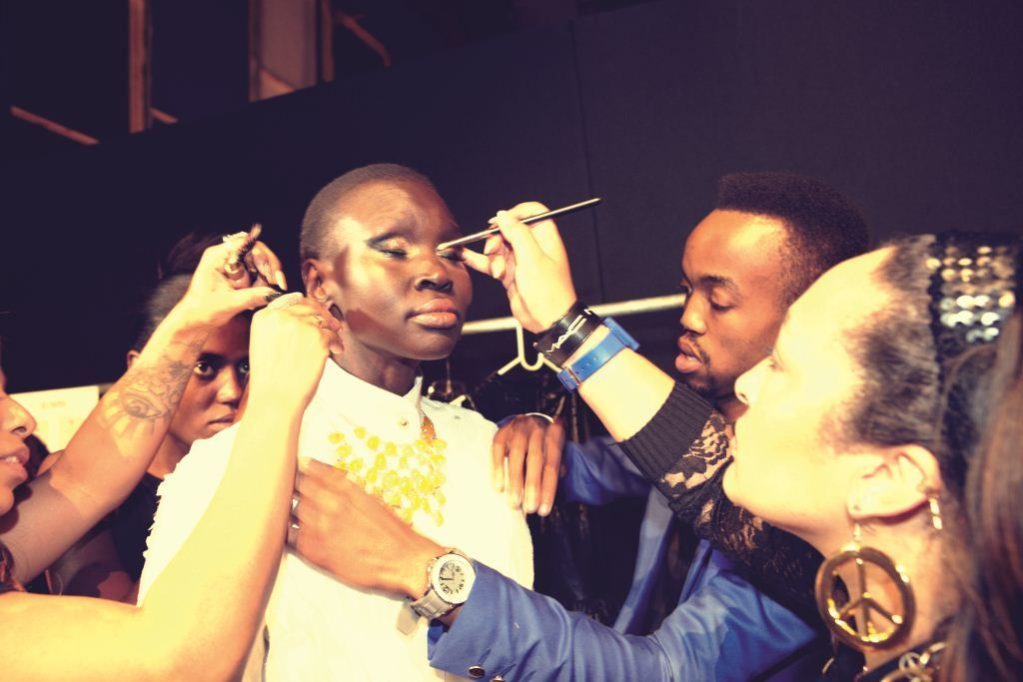You has had a fantastic 2013, with a gorgeous campaign, an incredibly successful partnership with Mr Price and an emerging designer of the year award. What keeps you inspired in this cut-throat industry?
I try to keep myself focused as much as I can. I know I am living in a microwave world, successes come and go, and life is fast. So I don’t focus on my short-term goals but instead I focus on my future and how I want my life to be. I have certain rules of conduct from when I started in this career, and that is to involve myself in projects I can handle, to always carry through what I have promised a third party, and to be polite, listen, learn and be mentored by those who have done what I am doing. I have understood that I am not alone in my life and in a small way I am responsible to my community. Like the way I have been inspired, I will inspire. It is not an easy road, so I keep my family and close friends close by.

What, in your mind, are the challenges facing designers in Africa? Following that, what are the opportunities that you can forecast for growth within the fashion industry on the continent?
The challenges facing designers in Africa are the same as the ones that the rest of the world faces, plus the fact that we are not as experienced as the rest of the world. So issues like cash flow, sufficient resources in all levels, and highly experienced workers is always a “juggler’s game”. But having said that, Africa is still in its experimental and growth phase in fashion, therefore, the potential for growth is there. And with the aid of First World technology, we are able to reach certain milestones of our own. First among them is that the fashion and textile industry is a credible industry that can add to the economy. Giant companies like Mr Price or Woolworths, who perform well, have associated themselves with designers by seeing their potential and investing in their brands. Magazines team up with designers to do pop-up stores, we start seeing more collaboration between ourselves too. So the need for progress is really present.
Are institutions such as AFI creating a large enough platform for all African designers as opposed to a select few, or should designers be doing more to promote themselves?

I think what AFI is doing is fantastic and only the beginning. They provide the platform and we participate. At the same time your business is yours, so you do the best you can to promote it and make it successful. Relying on others is not really recommended and can be counterproductive. If these platforms were not there, we would still have to promote our garments, shops, business, etc.
Are fashion shows outdated? What other avenues would you suggest to designers who don’t have the means to showcase?
There is an excitement and intrigue in following or attending fashion shows. It’s part and parcel of being in the industry but that does not limit a designer to let their work be known in other ways. Many do private viewings and invite loyal clientele and their friends; there are various media outlets that can advertise your products like fashion spreads that always need new, interesting content; or dressing a well-known personality that fits the ethos of your brand.

Following the Samsung show at AFI, where fashion and accessory designers from across the continent collaborated to create complementary ranges, will we be seeing more of this cross-continental collaboration from you going forward? And if you could collaborate with anyone from Africa, who would it be?
I would love to collaborate again, of course! I would like to work with a brand that is like-minded and stands for progress on this continent. I associate myself with NGOs like RedCap Foundation purely because they believe in investing time in our future leaders.
You are a great example of hard work and business savvy. What fundamental steps should designers be taking to create growth and ultimately make money from their craft?
Vision, persistence and support. Surrounding yourself with the right people is my biggest rule.
How important is keeping your product local, thereby keeping the work and money within the continent, and ultimately giving back to the economy and community?
It’s very important because everything is generation-based and you determine what people after you are going to stand for and believe in. So if being our own leader is important now, it will be important tomorrow.

Marianne Fassler
